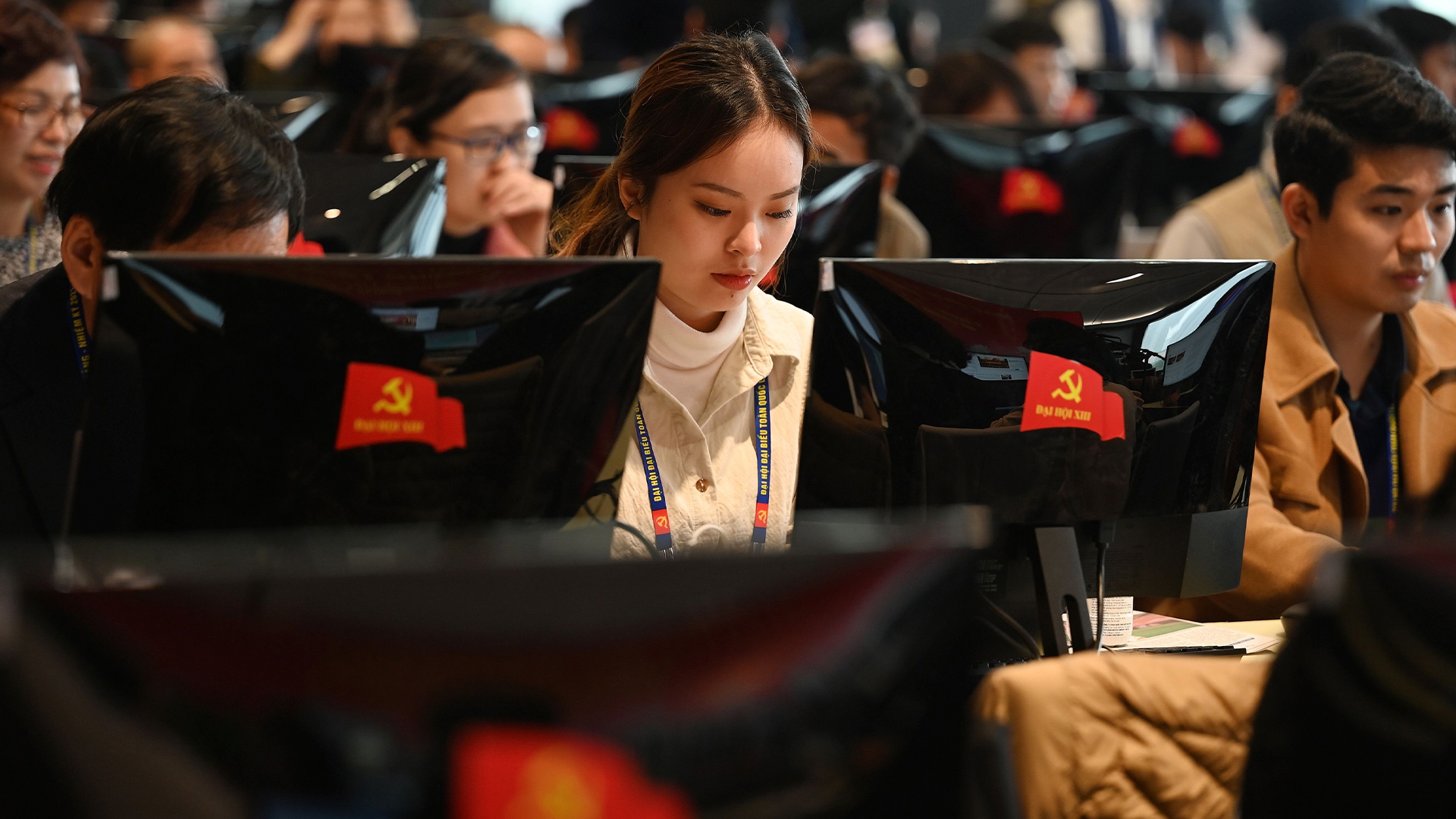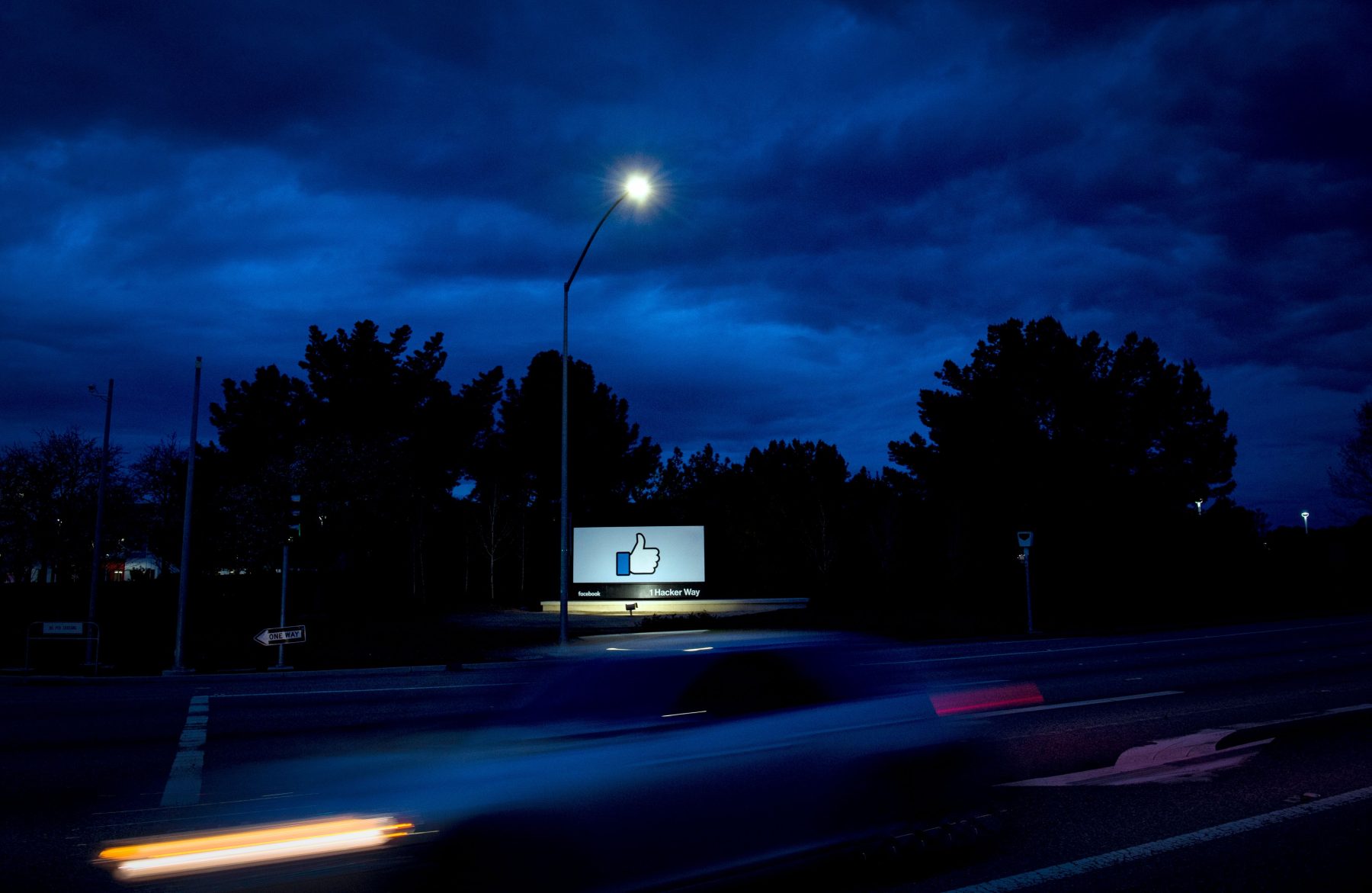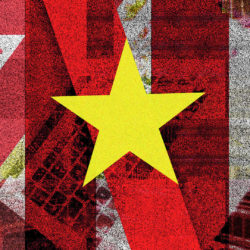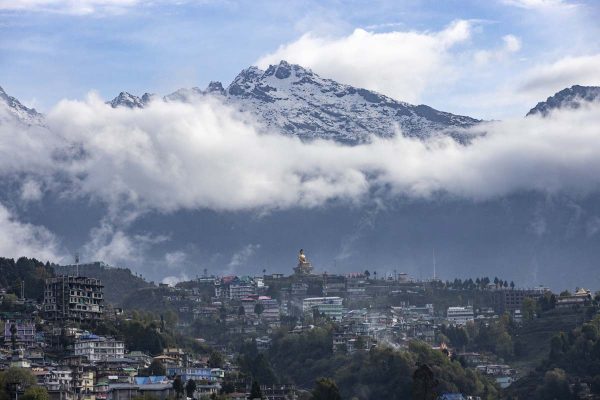
MANAN VATSYAYANA/AFP via Getty Images
Meta cozies up to Vietnam, censorship demands and all
When Vietnamese Prime Minister Pham Minh Chinh and his delegation visited Meta’s Menlo Park headquarters in California last week, they were welcomed with a board reminiscent of Facebook’s desktop interface.
“What’s on your mind?” it read at the top. Beneath the standard status update prompt were a series of messages written in Vietnamese that extended a warm welcome to the prime minister, underscoring the collaboration between his government and the social media giant. Sunny statements are reported to have dominated the meeting in which the two sides rhapsodized about bolstering their partnership.
Prime Minister Chinh highlighted the instrumental role American companies, Meta in particular, might play in uncorking the potentials of the Comprehensive Strategic Partnership that the U.S. and Vietnam cemented in mid-September. He encouraged Meta to deepen its ties with Vietnamese firms to boost the digital economy. Joel Kaplan, Meta’s vice president for U.S. public policy, indicated willingness to support Vietnamese businesses of all sizes, adding that the company hopes to continue producing “metaverse equipment” in the country.
The warm aura of the meeting obscured an uncomfortable reality for Meta on the other side of the Pacific: It has become increasingly enmeshed in the Vietnamese government’s draconian online censorship regime. In a country whose leaders once frowned upon it, Facebook has seen its relationship with the Vietnamese government morph from one of animosity to an unlikely alliance of convenience. Not a small feat for the social media giant.
Facebook has long been the most popular social media platform in Vietnam. Today, over 70% of Vietnam’s total population of nearly 100 million people use it for content sharing, business operations and messaging.
For years, Facebook’s approach to content policy in Vietnam appeared to be one of caution, in which the company brought some adherence to free speech principles to decision-making when it was faced with censorship demands from the government. But in 2020, it shifted to one of near-guaranteed compliance with official demands, at least in the eyes of Vietnamese authorities. It was in that year that the Vietnamese government claimed that the company went from approving 70 to 75%% of censorship requests from the authorities, to a staggering 95%. Since then Vietnamese officials have maintained that Facebook’s compliance rate is upwards of 90%.
Meta’s deference to Vietnam’s official line continues today. Last June, an article in the Washington Post quoted two former employees who, speaking on the condition of anonymity, said that Facebook had taken on an internal list of Vietnam Communist Party officials who it agreed to shield from criticism on its platform. The undisclosed list is included in the company’s internal guidelines for moderating online content, with Vietnamese authorities having a significant sway on it, the Post reported. While the Post did not cite the names of the Vietnamese officials on the list, it noted that Vietnam is the only country in East Asia for which Facebook provides this type of white-glove treatment.
Also in June, the government instructed cross-border social platforms to employ artificial intelligence models capable of automatically detecting and removing “toxic” content. A month earlier, in the name of curbing online scams, the authorities said they were gearing up to enforce a requirement that all social media users, whether on local or foreign platforms, verify their identities.
These back-to-back developments are emblematic of the Vietnamese government’s growing confidence in asserting its authority over Big Tech.

How has Vietnam reached this critical juncture? Two key factors seem to account for why Vietnamese authorities are able to boss around Big Tech.
The first is Vietnam’s economic lure. Vietnam’s internet economy is one of the most rapidly expanding markets in Southeast Asia. According to a report by Google and Singapore’s Temasek Holdings, Vietnam’s digital economy hit $23 billion in 2022 and is projected to reach approximately $50 billion by 2025, with growth fueled primarily by a thriving e-commerce sector.
Dangling access to a market of nearly 100 million people, Vietnamese authorities have become increasingly adept at exploiting their economic leverage to browbeat Big Tech companies into compliance. Facebook’s 70 million users aside, DataReportal estimates that YouTube has 63 million users and TikTok around 50 million in Vietnam.
Although free speech principles were foundational for major American social media platforms, it may be naive to expect them to adhere to any express ideological value proposition at this stage. Above all else, they prioritize rapid growth, outpacing competitors and solidifying their foothold in online communication and commerce. At the end of the day, it is the companies’ bottom line that has dictated how Big Tech operates across borders.
Alongside market pressures, Vietnam has also gained leverage through its own legal framework. Big Tech companies have recognized that they need to adhere to local laws in the countries where they operate, and the Vietnamese government has capitalized on this, amping up its legal arsenal to tighten its grip on cyberspace, knowing full well that Facebook, along with YouTube and TikTok, will comply. Nowhere is this tactic more manifest than in the crackdown on what the authorities label as anti-state content.
Over the past two decades, the crackdown on anti-state content has shaped the way Vietnamese authorities deployed various online censorship strategies, while also dictating how a raft of laws and regulations on internet controls were formulated and enforced. From Hanoi’s perspective, anti-state content can undermine national prestige, besmirch the reputation of the ruling Communist Party and slander and defame Vietnamese leaders.
There is one other major benefit that the government derives from the big platforms: it uses them to promote its own image. Like China, Vietnam has since 2017 deployed a 10,000-strong military cyber unit tasked to manipulate online discourse to enforce the Communist Party’s line. The modus operandi of Vietnam’s cyber troops has been to ensure “a healthy cyberspace” and protect the regime from “wrong,” “distorting,” or “false news,” all of which are in essence “anti-state” content in the view of the authorities.
And the biggest companies now readily comply. A majority of online posts that YouTube and Facebook have restricted or removed at the behest of Vietnamese authorities were related to “government criticism” or ones that “oppose the Communist Party and the Government of Vietnam,” according to the transparency reports by Google and Facebook.
The latest data disclosed by Vietnam’s Ministry of Information and Communications indicates that censorship compliance rates by Facebook and YouTube both exceed 90%.
In this context, Southeast Asia provides a compelling case study. Notably, four of the 10 countries with the highest number of Facebook users worldwide are also in Southeast Asia: Indonesia, the Philippines, Vietnam and Thailand. Across the region, censorship requests have pervaded the social media landscape and redefined Big Tech-government relations.
“Several governments in the region have onerous regulation that compels digital platforms to adhere to strict rules over what content is or isn’t allowed to be on the platform,” Kian Vesteinsson, an expert on technology and democracy at Freedom House, told me. “Companies that don’t comply with these rules may risk fines, criminal or civil liability, or even outright bans or blocks,” Vesteinsson said.
But a wholesale ban on any of the biggest social platforms feels highly improbable today. These companies have become indispensable partners in Vietnam’s online censorship regime, to the point that the threat of shutting them down is more of a brinkmanship tactic than a realistic option. In other words, they are too important to Vietnam to be shut down. And the entanglement goes both ways — for Facebook and Google, the Vietnamese market is too lucrative for them to back out or resist censorship demands.
To wit, after Vietnam threatened to block Facebook in 2020 over anti-government posts, the threat never materialized. And Facebook has largely met the demands of Vietnamese authorities ever since.
Last May, TikTok faced a similar threat. Vietnam launched a probe into TikTok’s operations in Vietnam, warning that any failure to comply with Vietnamese regulations could see the platform shown the door in this lucrative market. While the outcome of the inspection is pending and could be released any time, there are already signs that TikTok, the only foreign social media platform to have set up shop in Vietnam, will do whatever it takes to get on the good side of Vietnamese authorities. In June, TikTok admitted to its wrongdoings in Vietnam and pledged to take corrective actions.
The fuss that Vietnamese authorities have made about both Facebook and TikTok has likely masked their real intent: to further strong-arm these platforms into becoming more compliant and answerable to Vietnamese censors. Judging by their playbook, Vietnamese authorities are likely to continue wielding the stick of shutdown as a pretext to tighten the grip on narratives online, fortify state controls on social media and solidify the government’s increasing leverage over Big Tech.
Could a different kind of platform emerge in this milieu? Vietnam’s economy of scale would scarcely allow for this kind of development: The prospect of building a more robust domestic internet ecosystem that could elbow out Facebook or YouTube doesn’t really exist. Absent bigger political and economic changes, Hanoi will remain reliant on foreign tech platforms to curb dissent, gauge public sentiment, discover corrupt behavior by local officials and get out its own messages to its internet-savvy population.
The story you just read is a small piece of a complex and an ever-changing storyline that Coda covers relentlessly and with singular focus. But we can’t do it without your help. Show your support for journalism that stays on the story by becoming a member today. Coda Story is a 501(c)3 U.S. non-profit. Your contribution to Coda Story is tax deductible.
















